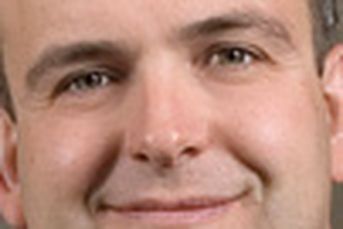SEC may crack down on high-frequency traders
The Securities and Exchange Commission may impose buy-and-sell obligations on electronic-trading firms and other “high-frequency” proprietary-trading firms that now represent more than 50% of daily stock trading volume.
The Securities and Exchange Commission may impose buy-and-sell obligations on electronic-trading firms and other “high-frequency” proprietary-trading firms that now represent more than 50% of daily stock trading volume.
Such firms are thought to have played a role in the stock market “flash crash” May 6, SEC Chairman Mary Schapiro said last Tuesday.
Broad stock market indexes fell more than 5% in five minutes during the violent market disruption that day and then rebounded almost entirely in 90 seconds. The disruption — including canceling by exchanges of more than 20,000 trades — has exposed market structure gaps and raised serious questions about the integrity of the market and its price discovery functions.
In a speech before The Economic Club of New York, Ms. Schapiro disputed some traders’ assertion that the May 6 event was an aberration, and said its effects linger. She cited comments from individual investors and their brokers to support her point.
“Retail broker-dealers have told us that their customers — individual investors — have pulled back from participating in the equity markets since May 6,” Ms. Schapiro said. “Indeed, according to mutual fund data, every single week since May 6 has seen an outflow of funds from equity mutual funds.”
“TREND IS TROUBLING’
Although other factors may also be contributing to reduced participation in stock markets, the “trend is troubling, particularly if concerns about equity market structure are playing even a small role in investor decision making,” Ms. Schapiro said.
The SEC has taken initial steps to re-establish confidence. Those include circuit breakers that pause trading in stocks that move 10% or more within five minutes.
The SEC has also proposed banning broker-dealers from giving direct marketplace access to very active electronic-trading customers, beefing up reporting requirements for those traders and banning them from access to so-called flash orders that may give them an unfair advantage.
But Ms. Schapiro said that more needs to be done because high-frequency traders essentially have replaced specialists and other market makers who, in the past, were obligated to make continuous, two-way markets in stocks. On May 6, rather than stepping in and buying stocks that were plummeting, high-frequency trading firms using programmed algorithms pulled back or withdrew from the market entirely.
The SEC is preparing a report that likely will analyze the reasons that these firms abandoned their informal market-making roles. It could require registration of very active trading firms as market makers.
“The issue is whether the firms that effectively act as market makers during normal times should have any obligation to support the market in reasonable ways in tough times … These traditional obligations have fallen by the wayside as the market structure evolved,” Ms. Schapiro said.
She also said that regulators need to improve the new circuit breaker mechanisms for individual stocks because anomalous trades can needlessly trigger halts that impede price discovery.
“Our next steps are likely to include a careful review of a limit-up/limit-down procedure that would directly prevent trades outside specified parameters, while allowing trading to continue within those parameters,” Ms. Schapiro said.
The SEC has already said that it is probing the practice of many professional trading firms to flood the market with orders in order to test quotes. Many firms cancel 90% or more of the orders that they submit, and the SEC is investigating whether the procedures involve fraud or other improper behavior.
KEEPING ORDER
But Ms. Schapiro said that such extravagant order stuffing, even if legal, may undermine fair and orderly markets. As a result, the SEC will consider whether to impose new registration and trading requirements, such as one that would require a quotation to remain in force for a minimal period of time.
Ms. Schapiro also expressed concern about so-called dark-pool trading venues that allow institutional investors to buy and sell stocks through private firms and big brokerages such as The Goldman Sachs Group Inc. and Morgan Stanley Smith Barney LLC.
Although such trading represents almost 30% of daily equity trading volume, up from about 25% just a year ago, dark-pool volume plummeted to 10% at the height of the May 6 disruption.
“In a time of duress, the public markets were the ones that received the flood of sell orders,” Ms. Schapiro said. “Can we expect the public markets to handle nearly all the order flow in tough times, yet be bypassed routinely by a large volume in normal times?”
Although the SEC has been overwhelmed by the Dodd-Frank law’s requirements, Ms. Schapiro said that the commission won’t retrench from its traditional role of ensuring that U.S. markets are structured to promote fairness, efficiency and transparency.
E-mail Jed Horowitz at [email protected].
Learn more about reprints and licensing for this article.




